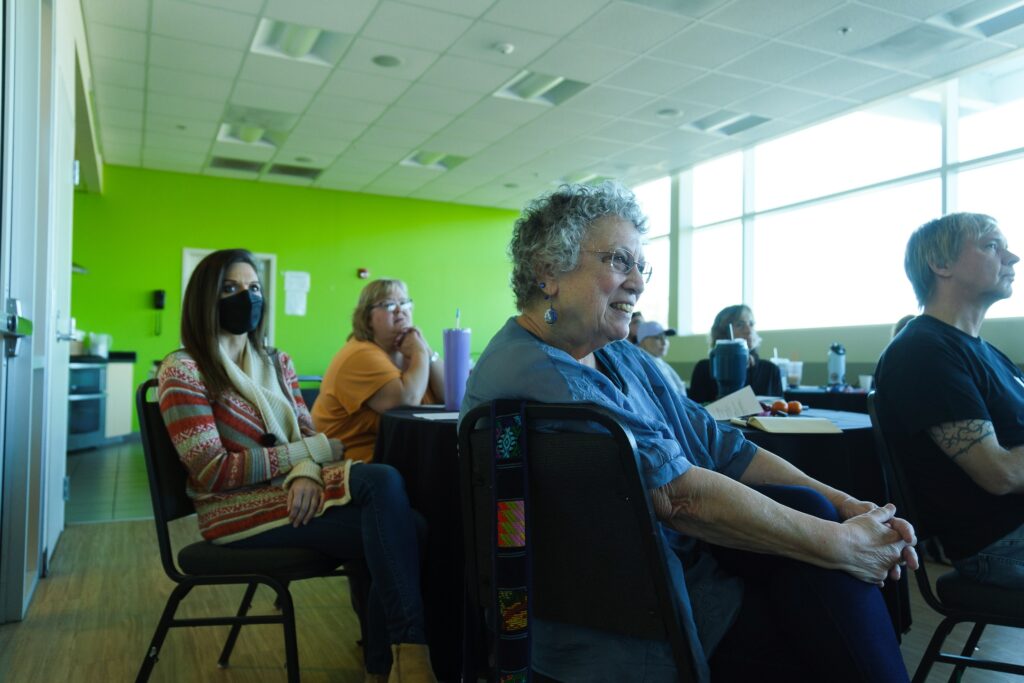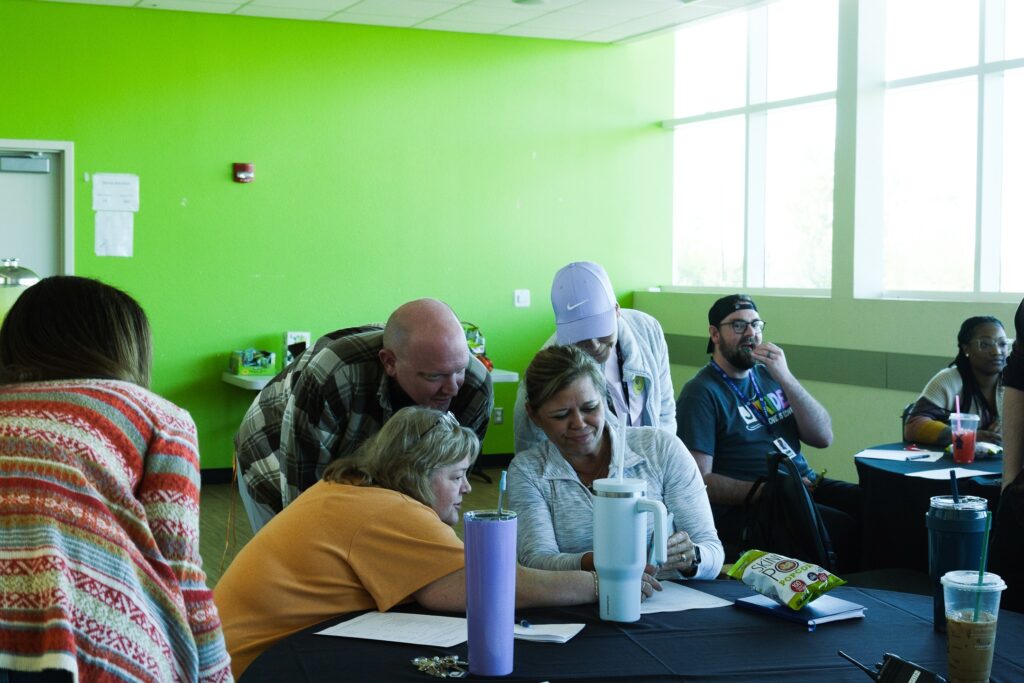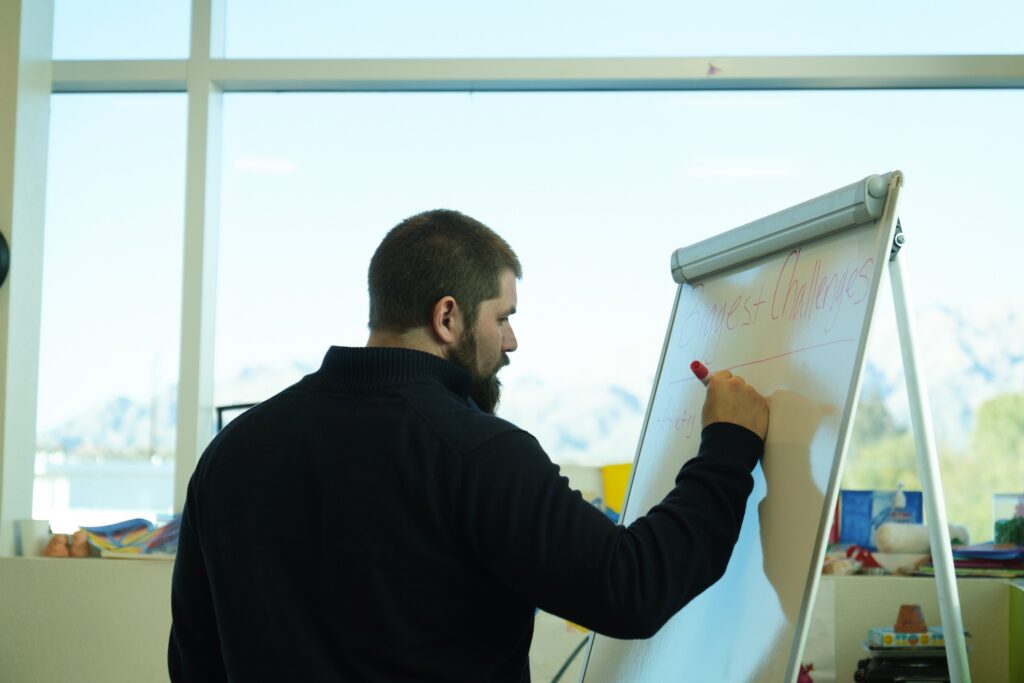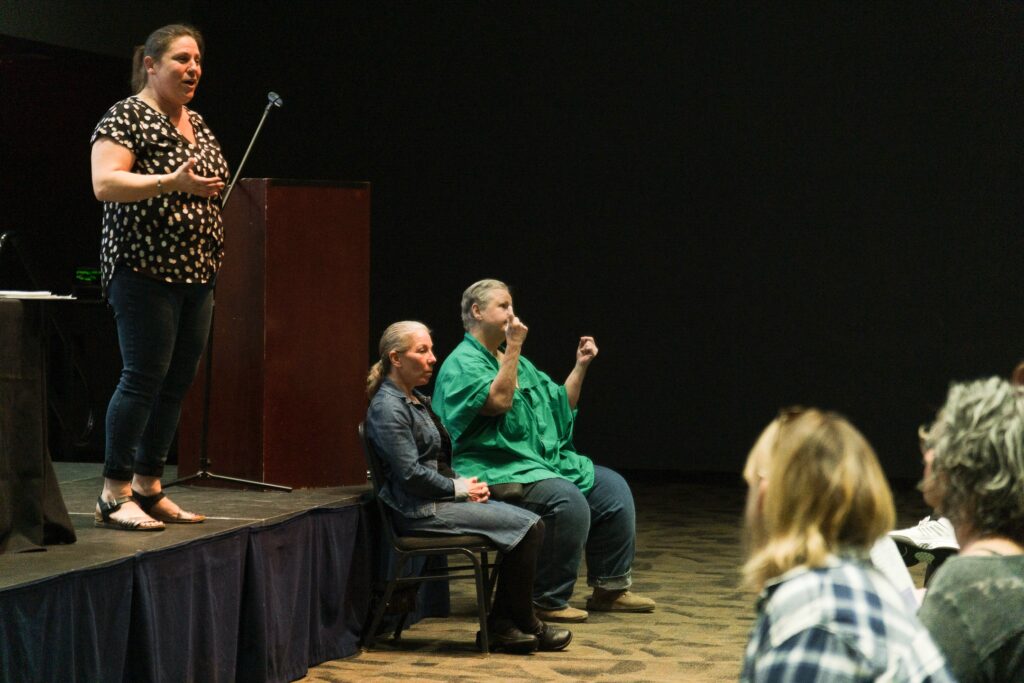Breaking Down Barriers, Building Bridges
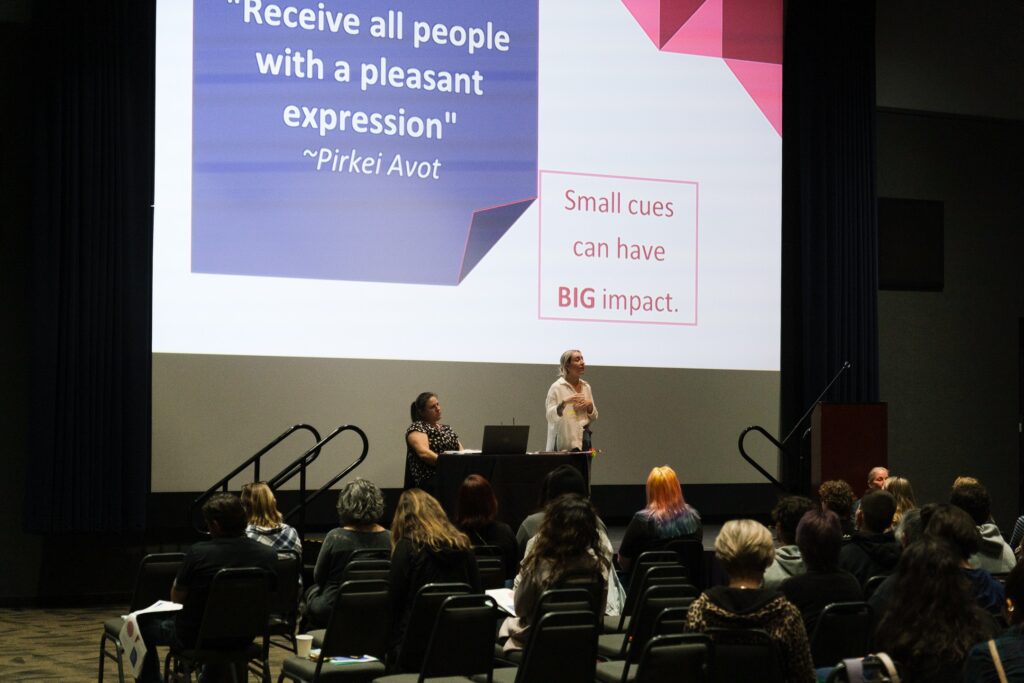
In May of 2018, Todd Rockoff, President and CEO of the Tucson Jewish Community Center (JCC or the J), heard a presentation about the national Safety, Respect and Equity Coalition that was created to serve the Jewish community in public spaces like the J. Todd immediately decided to sign on and get involved.
By 2020, IDEA issues had become an area of focus for the JCC Board, as demonstrated by the adoption of the Safety Respect and Equity (SRE) Network Standards created to make all Jewish workplaces and communal spaces safe, respectful and equitable for employees, members and clients. The IDEA grant from The David and Lura Lovell Foundation enabled the J to review anti-harassment and non-discrimination policies and reporting and response procedures for needed revisions and updates. Critical to success was making the policies more accessible and better communicated to employees on a regular basis.
In 2021, the JCC engaged Sacred Space to work with their staff and other Jewish organizations in Tucson to do a deep dive and policy review. Todd said, “We want to make sure that our policies are tied to our values. If we say we want a reporting structure, or that these are harmful behaviors, we named them and they are codified in our policy, as are all the other elements.”
The investment from the Lovell Foundation helped with planning, with hiring external consultants and with training. Todd said, “We trained our entire staff—all 300. Ultimately, we created a train-the-trainer program. We have four of our staff who can now do the training.”
“There have been some situations—because nobody is perfect—where things have been reported,” said Todd. “Now, we have a process to be able to ensure that those things are dealt with in a way that is fair, but also efficient. In one case, we had to revoke someone’s membership because of unacceptable behavior. Five years or six years ago, we might have just said, ‘please don’t do that.’ Our board is fully supportive and it is now part of our culture to hold people accountable.”
The JCC hired its first Inclusion Coordinator in January of 2022. Todd said, “While the Lovell Foundation didn’t fund the position, the journey that the Lovell funding provided helped us identify that this was a need, and then we found other funding to pay for the employee for the first two years.”
“The Inclusion Coordinator is responsible for the training on diversity, equity, and inclusion,” Todd continued. “Every other week we have an inclusion learning moment. For example, we ask ourselves, ‘how can we hold multiple identities and what are the identities that one holds that could cause oppression, that create privilege? How do we become more aware of what they are?'”
“The ongoing development and enhancement of our culture has been profound,” said Todd. “The fact that this is out there in the ethos is and is reflected in our policies is transformational, because we are a transparent, open organization, where culture and employee experience matter.”
The JCC sees the results of what they are doing from participation in two important employee experience surveys. The JCC employee engagement score overall is 70%, which is in the upper 20% of JCCs in the study. Todd said, “It’s not about the score itself. It’s really the impact and experience that matter. So we spend a lot of time looking at the detailed results by department. The level of transparency that is essential for this process means that you share the data with your entire staff and your board.”
The J uses the platform of its work to take care of people of all ages and all abilities. To work with people with disabilities, which is challenging work, the staff must feel good about not just what they’re doing with the participant but the place in which they provide the service.
Todd said, “What I would hope is that we continue to earn the reputation as being a great place to work. And we continue to never be complacent about our work around culture, and that our employee retention or growth strategy for the individual continues to provide them with the highest level of opportunity. When we do go out to market to find people, we want to find people raising their hand saying I want to work there because it is known as a great place to learn and grow. That’s what we want. And if we do that, then what we’re able to deliver to the community is at the very highest level possible.”
Todd also commented on the broader role of the J in impacting antisemitism, which is on the rise: “I believe that organizations like the J are vital to combating antisemitism because we create an environment here that is rooted in Jewish values and welcomes people from the broader community into programming in our space, where there is real community building. Without an organization like the J, you create more barriers. And with an organization like the J, you create more bridges.”
